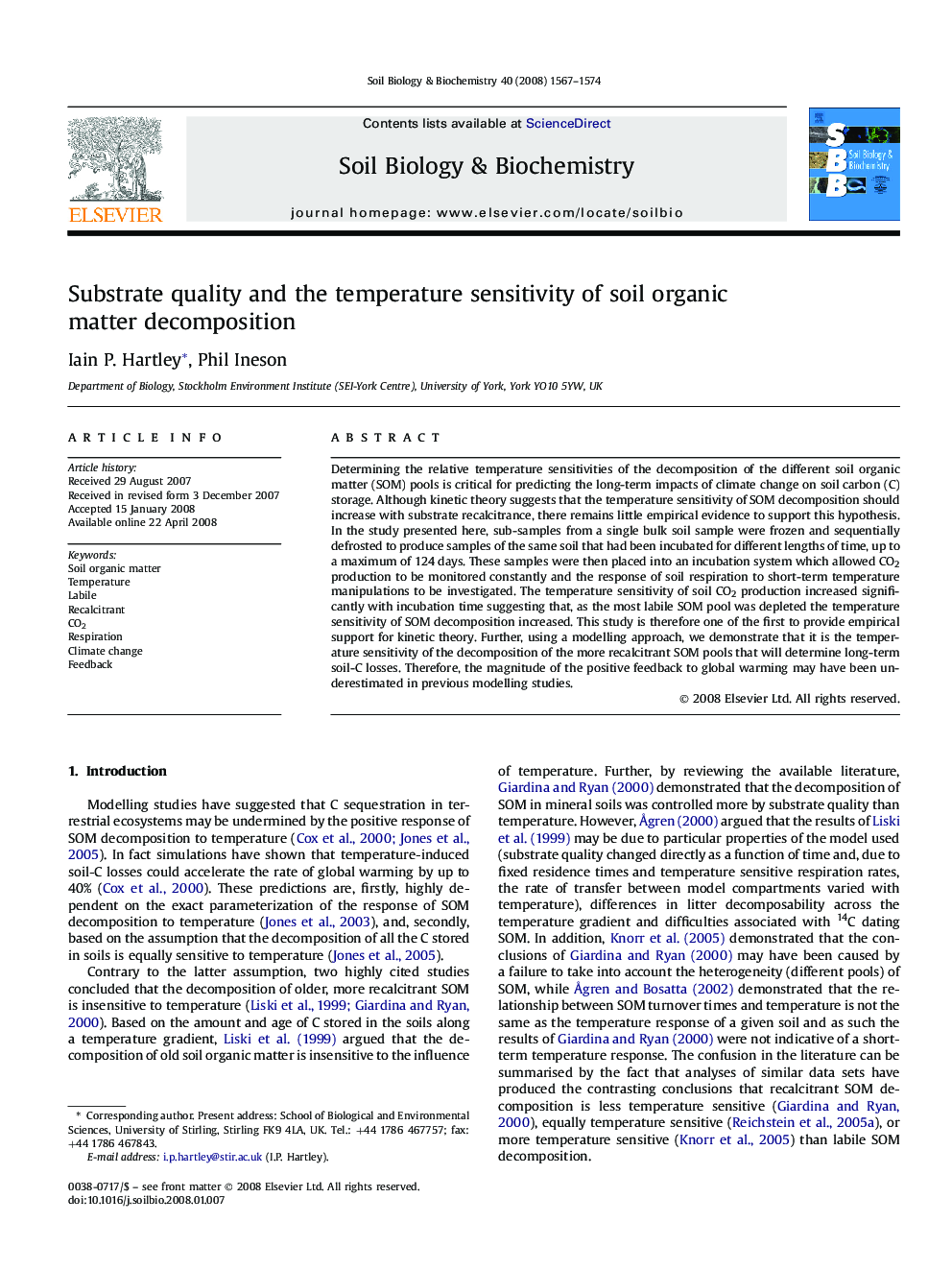| Article ID | Journal | Published Year | Pages | File Type |
|---|---|---|---|---|
| 2025807 | Soil Biology and Biochemistry | 2008 | 8 Pages |
Determining the relative temperature sensitivities of the decomposition of the different soil organic matter (SOM) pools is critical for predicting the long-term impacts of climate change on soil carbon (C) storage. Although kinetic theory suggests that the temperature sensitivity of SOM decomposition should increase with substrate recalcitrance, there remains little empirical evidence to support this hypothesis. In the study presented here, sub-samples from a single bulk soil sample were frozen and sequentially defrosted to produce samples of the same soil that had been incubated for different lengths of time, up to a maximum of 124 days. These samples were then placed into an incubation system which allowed CO2 production to be monitored constantly and the response of soil respiration to short-term temperature manipulations to be investigated. The temperature sensitivity of soil CO2 production increased significantly with incubation time suggesting that, as the most labile SOM pool was depleted the temperature sensitivity of SOM decomposition increased. This study is therefore one of the first to provide empirical support for kinetic theory. Further, using a modelling approach, we demonstrate that it is the temperature sensitivity of the decomposition of the more recalcitrant SOM pools that will determine long-term soil-C losses. Therefore, the magnitude of the positive feedback to global warming may have been underestimated in previous modelling studies.
